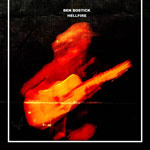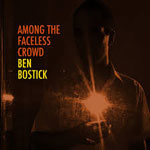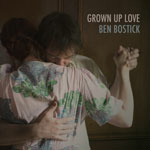Features
Ben Bostick: The Daily Vault Interview
by Jason Warburg
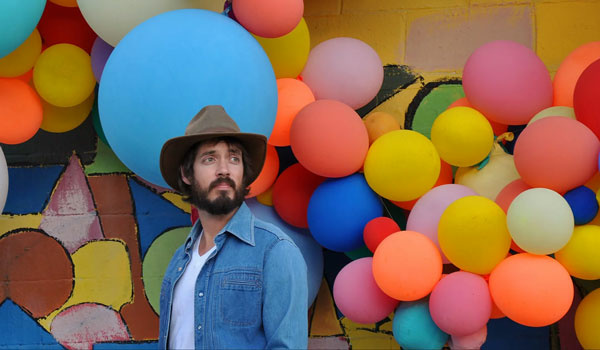
A decade ago, South Carolina-born singer-songwriter Ben Bostick set his compass west like a pioneer, albeit one who found the crowds thronging the Santa Monica pier liked his mix of covers and original songs so well that he could actually make a living busking. It was the beginning of a journey he’s still on today, full of highs and lows and tales that only he could tell.
Bostick’s initial oceanside success bankrolled his 2015 EP My Country, a collection of alternately playful and poignant outsider-country tunes in the tradition of Waylon Jennings and Chris Stapleton. His self-titled 2017 debut full-length applied that palette to a set of “deeply personal songs… often employing the musical vocabulary of classic country, but determined to blaze their own trails.” Hellfire followed a year later, a honky-tonk barn-burner that’s ferociously funny when it isn’t just ferocious.
Marriage, fatherhood, and a second cross-country move back to the Atlanta area prefaced album number three. Among The Faceless Crowd (2020) stood in stark contrast to its predecessors, a lonely acoustic singer-songwriter album about desperate souls in desperate times that sometimes sounds like a cousin of Bruce Springsteen’s Nebraska. The common thread running all the way through has been Bostick’s uncommon commitment to craft, to creating worlds and characters in his songs that feel as real as a midnight huddle at the end of the bar.
Bostick’s fourth full-length, launching August 20, is yet another twist along his path, as this time there are no characters and no world to build other than his own. In February 2020, he and his wife Cari welcomed their second daughter. Over the next few months the world shut down, work dried up, and they came to the gut-wrenching realization that their older daughter Carmela was not well. One stressful visit to a specialist after another followed, until in July 2020 Carmela was diagnosed with Rett Syndrome, a rare and severe genetic disorder.
Hunkered down with his family through the height of the pandemic, Bostick did what came naturally: he began to write, processing his family unit’s trauma into art. The songs that came out, though—with one notable exception—were love songs, celebrations of the bond that had created Ben and Cari’s family in the first place. That one exception became the turning point at the heart of his new album Grown Up Love, called with stark simplicity “The Diagnosis.”
Last week Bostick sat down with the Daily Vault for an in-depth exploration of Grown Up Love that, much like the album itself, held as much laughter and joy as it did sadness and rumination. From reflections on resilience, to the nature of popular songwriting (“an original arrangement of clichés”), to that time he made a group of jaded Nashville songwriters cry, our conversation covered miles of ground with the well-traveled Bostick at the wheel.
Daily Vault: A lot of artists, when faced with a situation like the one you describe in “The Diagnosis,” might have built the whole album around that moment. And you did, but in a really different way, by facing that moment head-on in the one song, but otherwise focusing all of your attention on a different but related subject: the sustaining power of love. What led you to take that approach?
Ben Bostick: To put it simply, that’s what we needed at the time. I didn’t want to write an album wallowing in self-pity. If you’ve ever known somebody who’s self-pitying, you know that you want to comfort them for a while, but then, despite your best efforts, it can become annoying. And it’s not a useful thing to just repeat how sad you are, especially when you’re a parent and a husband. You have responsibilities; you can’t just sit there feeling sad for yourself.
Because it was such a sad situation, and we needed to be uplifted, I decided to write love songs. I started writing these songs for my wife and playing them for her, and she loved it. It was what we needed as a family and what I needed to do as a writer—to channel this crazy situation into something that could help get us through the worst of it.
Was writing “The Diagnosis” cathartic? Did it help?
I think so. It’s still not easy for me to listen to.
The story behind writing it is, we have another daughter who was born last February, right before COVID began. And she was four or five months old when our older daughter Carmela was diagnosed with Rett Syndrome. And nobody was around; it was a very strange, isolated time. Even while Carmela was getting diagnosed, they wouldn’t let both of us go into the hospital at the same time to talk with the specialist; it was one parent or the other. It was so stressful to have to do it that way.
Through all this time, we were isolated in a new house in the Atlanta suburbs, and to pass the time I would take our infant daughter on long walks. We’d walk down to this river nearby and she’d fall asleep in the carrier. On one of our walks down there, I just started thinking about the river, and time, and Carmela’s diagnosis, and on my phone I jotted down a bunch of notes, these sort of aphoristic sayings that were coming onto my head. I wrote down 50 or 60 of them standing by the river with the baby strapped to my chest. A week or so later I sat down and culled the lyrics to “The Diagnosis” out of those notes.
If you analyze the lyrics you’ll find that not everything is connected; one line to the next is sort of a different thing. These were complete thoughts that were coming to me one at a time, and then I strung them together in a way that made some logical sense, even though they don’t really flow from one to the next.
It was cathartic, but it certainly didn’t make it any easier. The only thing that’s made it easier is getting used to it, and with this kind of devastating news, the only way you get used to it is time passing. You grieve for a future that you thought was going to happen, and then once you’ve grieved for that future, you face your new future, and your new present, and things become strangely normal again. Now, a year after Carmela’s diagnosis, I don’t feel the same pain that we felt at the moment, though when I think back on it, I can easily summon some tears, I can tell you that.
One of the interesting things that has come out of the experience of telling people about it, is that so many people have gone through something like this, a situation that just bowls you over. This was the first time I’ve really been knocked on my ass, but most adults have at some point in their lives. I remember telling my step-grandmother, and it wasn’t until that moment that I really thought about the fact that she’s outlived three husbands and one of her children. And it’s so amazing that she’s still so wonderful.
As people we’re made of so much more than we think we are. We’re able to deal with terrible, terrible situations and keep on persisting in the world. Our priorities change with news like this. Now a priority of mine is to be reliable in times of crisis, which is something I never thought about before. But it’s important—you’re going to face terrible situations in your life, and being someone who people can lean on is better than falling apart.
I’d like to ask a few questions about some other favorite tracks on the album. Tell us more of the backstory behind “Different Woman,” the album opener.
It’s funny, because I’ve been telling a story about that song that I now don’t think is actually true.
In my memory, I heard an interview with the Brazilian author Paulo Coelho, who wrote The Alchemist and a bunch of other books. In the interview he talks about his relationship with his wife, who he met when they were teenagers, and the interviewer asks him what it’s like to be with the same woman for so long. And he says he isn’t with the same woman anymore, that he met a girl who he fell in love with, and now he’s with an older woman who’s a mother and a grandmother and has had a career, and she’s not the same woman.
I thought that was a beautiful take on monogamy, acknowledging a fact that everyone knows in their heart, but which is rarely articulated—that a marriage is actually a relationship between two constantly changing people. And it’s complicated, because you’re always re-navigating your relationship with this new version of the person you met, who is different now. In the case of my wife Cari, she’s so different. I outlined some of it in the song—just the sheer transformation of motherhood is indescribable. There’s a line in there about “Time was a suggestion”—when I met her, Cari was the worst person at being somewhere on time, she was so un-punctual. And now she’s planning stuff six months in advance!
So that’s the story I’ve been telling, but then I went back and listened to the interview with Paulo Coelho, and he didn’t say anything like that. So I must have heard it somewhere else. (laughter)
“Lucky Us” almost feels like a moment of soaring before the fall. It also has this pure and timeless feel to it, almost like it’s a forgotten standard. How do you tap into that feeling?
I’m a huge fan of American songbook standards; I listen to lots of vocal jazz and jazz standards. And as a writer I’m always studying the great writers, the Gershwins and Irving Berlins and Cole Porters and Rodgers and Hart and Hammerstein. I circle back to them as much as I circle back to the Beatles and Paul Simon and Bob Dylan and the great songwriters of the rock and roll era. So perhaps some of my study of standards has seeped into my writing… I mean, that would be great. (laughter)
“Lucky Us” is one of those songs that came out in maybe a minute and a half. Like a lot of songwriters, I write down ideas, and this idea was just the chorus: “Lucky me / Lucky you / Lucky us.” I thought it sounded like a good hook, and I had that in my notebook for a year or two. And I was part of this songwriting group called NSAI (Nashville Songwriters Association International) that’s geared toward people who want to be country songwriters and sell their songs to Nashville. I was there mostly to get some feedback.
The deal with this group is that you have to bring in a new song twice a month. “Lucky Us” came about when I needed a song for the next day and I just didn’t have time to do anything. The idea behind the song is basically “Count your blessings despite the burden that you have in life.” This was before Carmela was diagnosed, but we were already going to doctors and therapists and trying to figure out what was going on with her. It’s such an important thing to feel grateful for what you have in spite of your hardships.
So I wrote the song just to get it out, kind of tossed it off so I’d have something to present to this group of pretty jaded people, who tend to approach songwriting like a marketing exercise. I brought this song in and played it, and people were crying.
As a writer it’s actually kind of frustrating that the ones you don’t even think about are the best ones! (laughter) Because I work like hell at a lot of other songs, and I get done with them, and I know they’re terrible. But then you get these songs sometimes that just come out all at once, and they work, and this was one of those.
“If We Only Had Tonight” is like a distant cousin to Dave Matthews’ “When The World Ends.” What is it about the apocalypse that fires people’s imaginations….?
I don’t know, but there are a lot of songs out there that have a similar setup—“If tonight was all we had” and so on. Every way you can phrase it, it’s been said, and as far as I can tell, they’re all seduction songs. My angle on this was different. When you’re going through a tough time, you can bicker and let small things flare up, and my thought in this song was, if the world was going to end tomorrow, would we really be arguing about this bullshit? (laughter) When we remember that life is finite, can’t we just move on to the important stuff and skip arguing about whether to watch a horror movie or a comedy?
That was the starting point. It was so intense having an infant and a kid newly diagnosed and it was just the two of us, and I was trying to find work while she was having to deal with the kids upstairs and yeah, there was some bickering. (laughter) The song was me imagining, what if we got the news that this was it, that tomorrow we were all done. Would I argue with my wife or would I just tell her how much I love her and be together? Of course, I put some more poetic language in there.
The string arrangement for this track was done by Rob Burger, who was in Tin Hat Trio, and played on the first couple of Norah Jones records, and with Iron & Wine. I’m a fan of his work and I contacted him to ask him to put accordion on “A Grown Up Kind Of Love.” I still wasn’t sure at that point what to do with “If We Only Had Tonight,” because it was this sparse acoustic song, but it didn’t feel like it was quite there. I asked him if he heard anything for an accordion or harmonium or maybe pump organ he said “Let me try some strings.” And I was against strings, I didn’t want anything synthesized on this record, but I told him “Go for it.” He ended up using a combination of synth strings and a Mellotron that he had in his home studio, and it gave it this strange sort of timeless vibe, and then I mixed them pretty low and it really brought out the sort of cinematic emotion of it.
“A Grown Up Kind Of Love” is the polar opposite of the stereotypical pop song about the initial infatuation with someone new. Was that on your mind as you were working on the song?
No. At some point when I was writing these songs I realized that there was an album coming, and the concept of the album became about love between grown-ups, as opposed to puppy love. When you have kids, everything changes, of course. And then when you get something else thrown at you, like Carmela being diagnosed with Rett Syndrome, you start to feel older right away. I had the title for the record in mind and thought “I need to write a song that really solidifies all this.”
I don’t know where the food analogy came from, but I strung it together through the whole song, the idea that young love is like sweets or junk food—it’s delicious but it’s not going to keep you going—and grown-up love is like a garden, something that you have to take care of, but that will take care of you endlessly, forever. When your poetic conceit is that complex, you don’t want to say it in a way that’s too serious or analytical, or it may fall flat. I went with the French café feel because it has a lightness to it. A lot of standards have light melodies but beautiful lyrics.
“Like Old People Do” and “It Seems Like Only Yesterday” are two more songs that have a timeless feel to them. In a way those two songs almost feel like a distillation of the whole rest of the album into its purest form.
Yes, I think you hit the nail on the head. Those two tracks are also the least orchestrated—“Like Old People Do” is just voice and guitar, and “It Seems Like Only Yesterday” is just voice, guitar, and pedal steel. The reason I decided to do them like that is because any more elaborate orchestration would have taken away from the song.
“Like Old People Do” came about when my friend Pam Hobby—an amazing songwriter here in Georgia—and I were talking one day. She’s a little older than I am, and she was in the Florida Keys with her boyfriend, and when she came back, I asked what they’d been up to, and she said “Oh, you know, we would just go down to the dock and sit in the rocking chairs and hold hands, and stare out at the sunset like old people do.” She said it in this ironic “I’m an old fart” way, but to me it was beautiful, something to strive towards. An old couple holding hands looking out at the ocean is such a cliché that it isn’t even a cliché anymore. I reframed the song slightly so that instead of being from the perspective of an older person, it was about Cari and I finding the time to act like older people, to take the time to just sit silently and watch the sunset by the water.
Musically it’s just built around what coincidentally is called a line cliché, which is a descending chromatic movement that’s in a billion songs like “Something” by the Beatles or “Stairway To Heaven.” It has this sort of sentimental feeling to it, and it just always works. So I’m not breaking any new ground with this one, but to me it felt like the right combination of clichés and something new. Which is what I always tell people about popular songwriting—it’s an original arrangement of clichés. We’re all using these building blocks that we’ve heard before, and have a familiarity to them. You’re trying to strike the right balance between originality and cliché.
“It Seems Like Only Yesterday” is the only song I didn’t write in the two or three months leading up to recording this album. I originally wrote it for the one-year anniversary of my wife’s and my first date. You can tell I had strong feelings for her already! (laughter) I never thought I would release this song, it was a private song between the two of us, but when I started putting this record together it seemed like the perfect cap, even more so because it was the real deal. It’s about going through your whole lives together, which is what grown up love is.
As I say in the song, we met at a Halloween party, and it’s fun and it’s wonderful that first year, and then you get older and you have kids, and then you get even older and eventually one of you is going to die first. I couldn’t think of anything I could write that would be more appropriate as an ending song.
I think it’s a great ending, and you mentioning that one person is going to die first immediately made me think of Jason Isbell’s “If We Were Vampires”—“ Maybe we'll get forty years together…”
I love Jason Isbell. His record Southeastern was one of those records that just killed me.
I think it’s one of the best records of the century so far.
Absolutely.
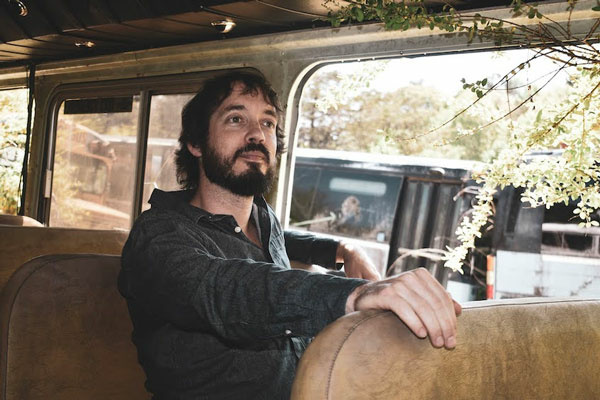
A couple of questions about songwriting. What makes a good song? What are the components and how do you put them together?
What I said earlier about “an original arrangement of cliches,” that’s one answer. But writing songs can come about in a number of ways; I’m not one of those people that has a method. Sometimes, like with “Lucky Us,” it starts with a memorable phrase and I build around that. Sometimes I want to say something specific and I have to figure out a way to do that that’s going to be interesting, like in “Different Woman.” A lot of times songs will start with a sound—a chord progression or a melody or a rhythm or something that strikes my imagination.
For me to write a decent song I have to be really interested in it. I’ve never been one of those guys who can force out a song; it has to start with a spark. It can be as simple as just a voicing of a chord, if that for some reason lights the fire. As far as what makes a good song, I don’t honestly know, I can only tell you what inspires me. Sometimes I’ll wrestle with an idea for a long time, and sometimes I’ll churn out 10 songs in three weeks because I’m just feeling it.
When I listen to your songs I hear some Johnny Cash, some Springsteen, and maybe especially on this album, some Jason Isbell. But who do you think of as influences?
Definitely those three are influences, Johnny Cash especially. His songs cover all the moods of life—sweet love songs, badass prison songs, funny songs, serious songs, story songs. That’s always been something I strive to do, paint a complete picture of life and not just be a specialist in a certain vibe. There’s a lot of guys that do that, and it’s good from time to time, but I generally like to listen to things that can be funny one moment, sad the next moment, romantic the moment after that.
Before he was persona non grata, I was a huge fan of Woody Allen’s movies. I don’t know what to think about him anymore, but I still love Annie Hall and Manhattan and Stardust Memories and those great movies which are beautiful and funny and sad and just full of everything in life. A lot of those romantic comedies from that era and in the ’80s pulled off that kind of feeling. In Steel Magnolias there’s that great line, “Laughter through tears is my favorite emotion.”
On this record, probably the biggest influence was Paul Simon, specifically the first four solo records—the self-titled one, There Goes Rhymin’ Simon, Still Crazy After All These Years, and Hearts And Bones. I was listening to those a lot before I started writing these songs. One thing that I especially like about those records is that he’s able to go from sound to sound without feeling like it’s a mixtape or something. He uses different musicians on each track, and different styles, reggae on one song and a Dixieland jazz band on the next, but it all feels cohesive. That was one of the inspirations behind doing the record this way, with a lot of collaborators, but hopefully still sounding cohesive.
On this record especially, a big influence on the sound was an engineer named Al Schmitt. He started working in the 1950s recording jazz stuff and then he recorded all the great Sam Cooke records, Sinatra, Jefferson Airplane, Steely Dan, Toto, Dylan. He’s done everybody and he has a certain sound that’s very natural compared to most other productions. He does it all with his microphone choice, and he uses no EQ on his records at all, because he started working before the age of EQ. There’s a beauty in the natural sound where it doesn’t feel produced, you don’t have those sounds that are only pleasing because of the electronics. My goal with this record was to make it sound just like it would in the room; very little has been done to anything; just some reverb and ambience added. I studied a lot of Al Schmitt’s work and engineered and mixed everything myself so I was able to actually use his principles, The aesthetic that he pioneered is what I used to create the sound of this record.
Overall, influence-wise, I’d have to just say everything. I’m the least discriminate listener in the world. I listen to everything. I love music, I love musicians, I love all genres, I love going to shows, all of it.
Finally, what’s next? You had started work on a different album before everything changed. Are you going to go back to those songs?
I was working on an album of portraits. My previous record was Among The Faceless Crowd, and I was going to do one called Faces, which was going to be portraits of certain people who were overlooked in some sense. And all of the titles were just going to be the person’s name—it was going to be very conceptual. I had written four or five tunes and maybe two or three were keepers, and then all this craziness started happening, and the love songs came pouring out. Now I’m not sure if I’m going to resume that project. I’ve been playing a couple of the songs live a lot, and people love them, but I don’t have the urge right now to write like that. Recently I’ve been writing stuff that’s more based on sounds.
I’m also veering more away from the country place where I started—I’m just not as interested in that sound right now as I was in the beginning. It’s starting to feel restrictive to me and I’m a big fan of harmony and melody. In the Americana world there’s an expectation that you’re going to use a limited palette, and sound a certain way, and I just don’t fit into that world. I don’t feel like I live in the world that’s represented by most Americana music, because I have an iPhone and a computer and a Prius. (laughter) I’m not a coal miner from 1930, I’m not Waylon Jennings reincarnated. You’re supposed to be authentic in the Americana genre, and in order to do that you’re supposed to dress a certain way and talk a certain way and write about certain things, and it sort of drives me nuts. I’m just going to do my own thing and hopefully some people will listen.
(Thanks to Bill Benson and Adam Tercyak-Morgan of Team Clermont for arranging this interview, and to Ben for his, well, authenticity.)

